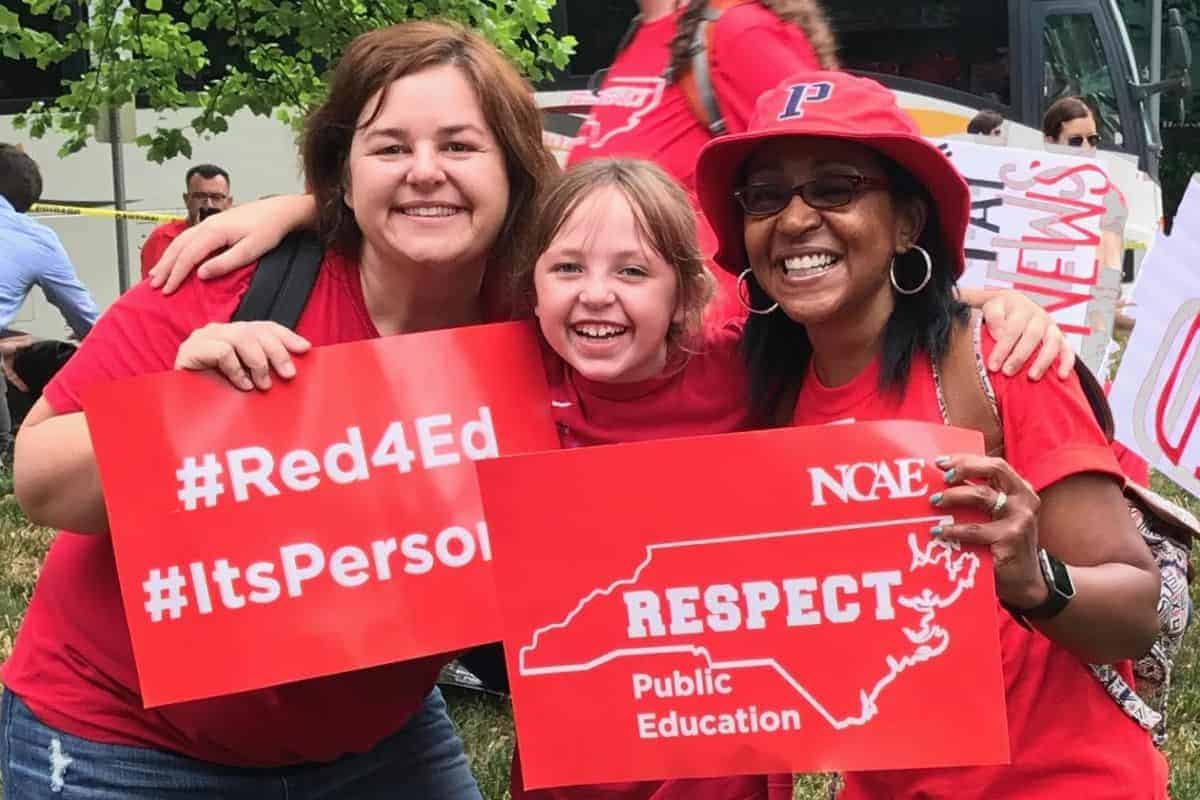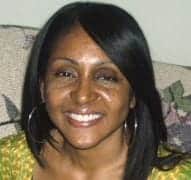On May 16, 2018, I stood shoulder to shoulder with thousands of educators from across North Carolina in the historic Rally for Respect March in Raleigh. As an active member of the North Carolina Association of Educators and as a school librarian, I have participated in numerous educational ventures. This march was likely one of the most exciting.
The collective message of increasing per pupil spending, safer schools, and establishing a comprehensive teaching salary was clearly stated. The chants and signs elevated and effectively conveyed the message. I observed several signs that resonated with me. One sign read, “Even librarians can’t keep quiet anymore.” At first, I was excited that school librarians were recognized.
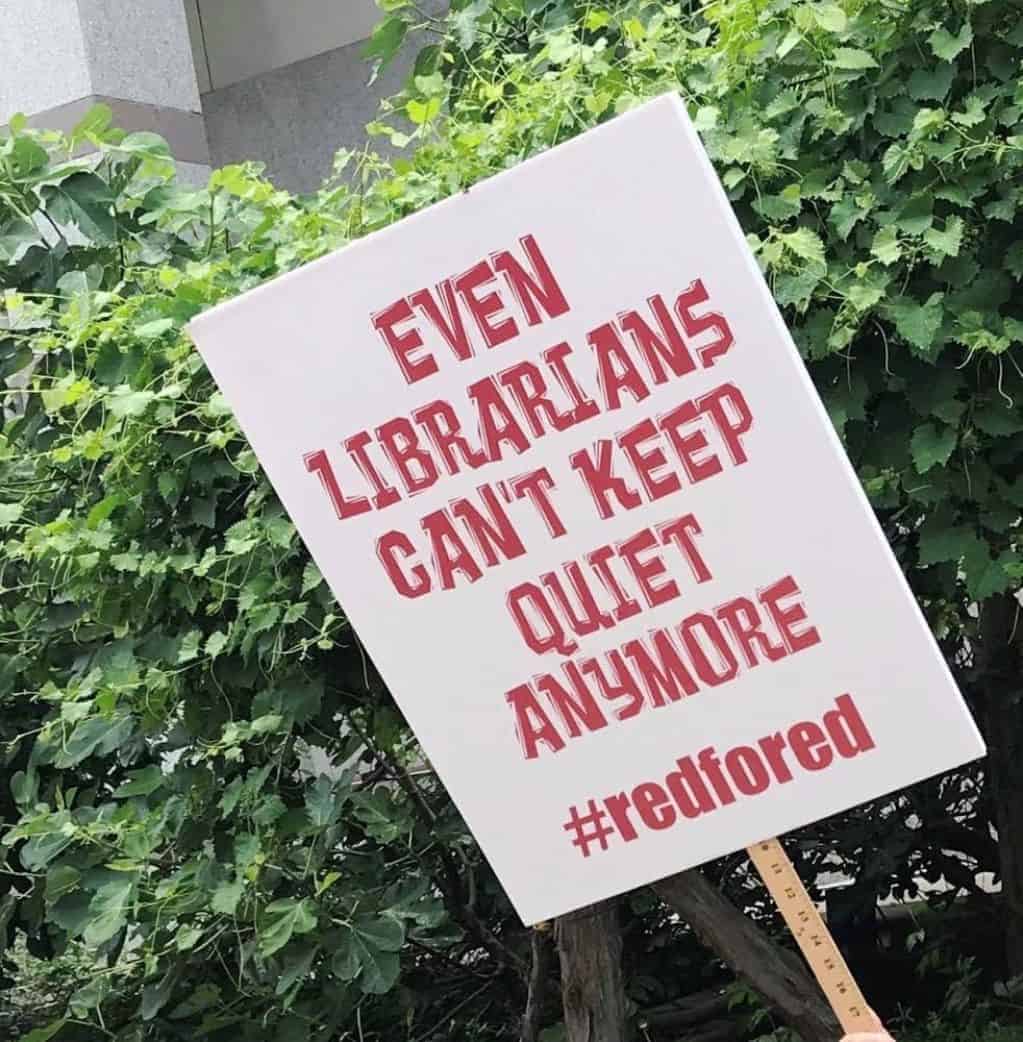
I knew that the sign was meant to be a play on words about the universal message of libraries being a quiet place of study, with the librarians supporting this type of solitude. However, as the day progressed, I became agitated about the underlying message that was being gently spoken. I felt that painful kidney punch that is so familiar when stereotypical comments are intimated about school librarians.
I can hear echoes of, “You better get quiet or the librarian will come over and get you.” Are school librarians still viewed as the quiet educators? The answer is a resounding yes. However, this could not be any further from the truth. School librarians are strong advocates who facilitate and foster active student learning, which continues outside of the media center. Therefore, the collective message of the march supports all facets of education and educators, including school library media services.
This article is not about undoing the shroud of stereotypes that plague our profession. However, it is about pointing out the fact that librarians are not hiding behind stacks, shelving books, and shushing folks. For a point of reference, stacks are the shelves where the books are stored. We are out of the stacks to share the importance of our library programs in supporting student learning and advocating for our library users.
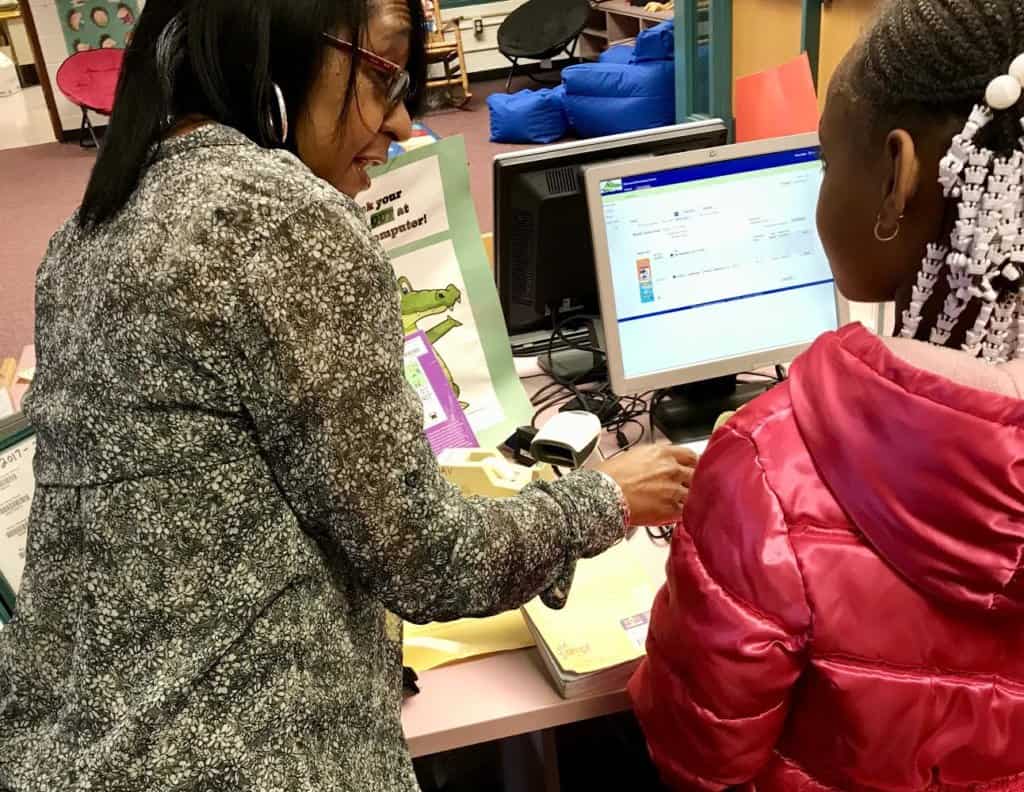
School library media personnel would like legislators to know the importance of having a certified school librarian in every school in North Carolina. Unfortunately, there are school districts in North Carolina that have made the decision to operate school library media centers without certified school librarians. The State of America’s Libraries 2018 Report indicates, “The school library is a unique and essential part of the learning community, and when led by a qualified school librarian, prepares all learners for college, career, and life.”
The second sign that resonated with me simply stated that, “Libraries are the heart of the school.” I believe that this was the most accurate sign that would highlight the importance of having school libraries that are staffed by certified school librarians. The following statements support this message:
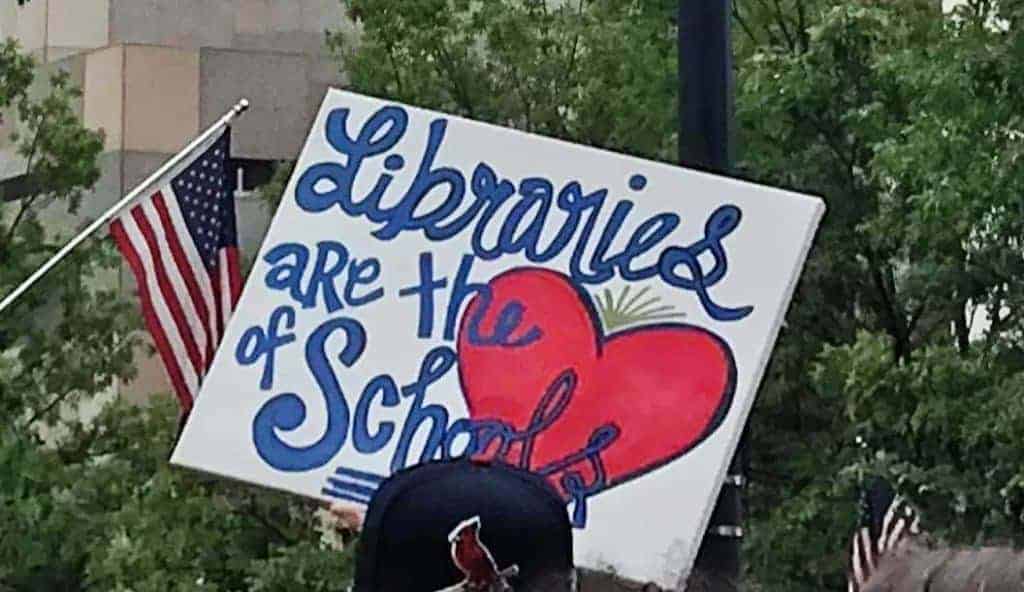
- School librarians are leaders. There should be no surprise when you see us at rallies and hear us speaking on educational panels, presenting at conferences, leading the school improvement team, and making productive noise at school board meetings. We write articles, publish books, and speak to legislators about growing concerns — such as cyberbullying, gun control, and equity issues — that affect our schools. We lead collaborative learning as leaders in our professional communities.
- School librarians are advocates and policy change agents. We provide public support for media programs and are strong partners in education. We are National Board Certified Teachers on a mission to tap into the learning style of every individual in our buildings. We effectively vocalize the importance of intellectual freedom.
- School librarians provide a safe, liberating haven for all. Through literature, resources, and programming, we offer a judgment-free zone where the growth mindset is at the center of all learning activities. We help cultivate and model a culture of reading.
- School librarians are instructional partners and information specialists. We collaborate with classroom teachers to create student-centered instructional units, such as fostering informational literacy. These efforts go outside of the media center, into the halls of the school, and out into the community.
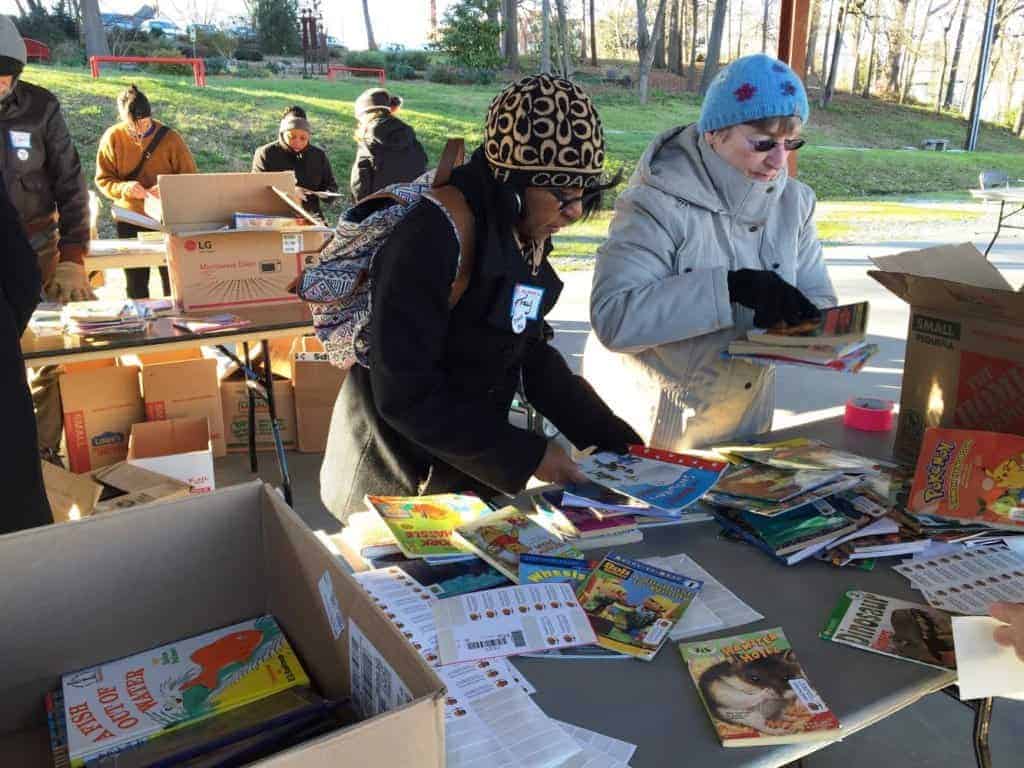
We did not wait until May 16th to interweave ourselves into the fabric of education. We are a necessary part of this rich fabric, ensuring the integration of educational technologies, including equitable access to the Internet, computers, and databases.
In short, as part of the heart of the school, school librarians are out of the stacks and deep in the community to support learning for all students, as evidenced in the Rally for Respect. Further digital resources about the role of school library media have been created by Kathy Parker, School Library Media and Digital Citizenship Consultant, North Carolina Department of Public Instruction.
Parker provides a comprehensive clearinghouse of information about the role of school library media in her School Library Media Wiki. Additionally, the American Association of School Librarians has created the National School Library Standards for Learners, School Librarians, and School Libraries, which provides a framework for transforming learning. Within the pages of this resource, the reader will find that the well-prepared, lifelong learner is directly correlated with the work of the school librarian.
I believe that the Rally for Respect brought out many segments of the teaching profession, including librarians who had never taken this type of visible stand. These efforts should be applauded.
However, the truth is that a vast majority of school librarians have been on the front lines for many years. I live by the following quote from the first African American woman elected to the United States Congress, as well as to run for president, the late Shirley Chisholm, who said:
“You don’t make progress by standing on the sidelines, whimpering and complaining. You make progress by implementing ideas.”
This is where you will find me; implementing ideas in my not-so-quiet librarian voice.
References
“School Libraries”, American Library Association, March 31, 2018. http://www.ala.org/news/state-americas-libraries-report-2018/school-libraries (Accessed May 27, 2018)
Parker, Kathy. School Library Media. North Carolina Department of Public Instruction, dtl.ncdpi.wikispaces.net/School+Library+Media. Accessed 20 May 2018.
American Association of School Librarians. American Library Association, 2018, standards.aasl.org/.
Recommended reading


